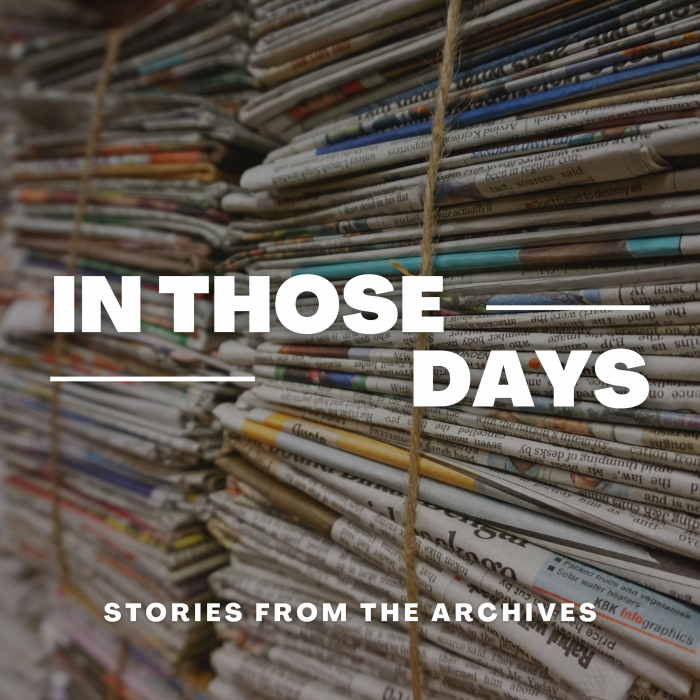How podcast transcripts will make me popular

When I started a podcast, In Those Days, I decided to include transcripts. It can be a pain but here is why I think it’s worthwhile.
Accessibility
Podcast transcripts make the content accessible to more people.
People with hearing impairments use transcripts to access audio content. This is a lot of people. More than 5% of people have disabling hearing loss.
Transcripts also help non-native English speakers. Text can be translated, or the audio easier to understand alongside a written transcript.
You could say that having a bigger potential audience just creates a bigger pool of people choosing not to be audience members. But that would be rude. Just because something is true, doesn’t mean you should say it.
Content
On the podcast I use digitised newspapers in Trove to discuss personal history with a guest and my co-host Christina Adams. I search Trove to find articles and information to hopefully surprise and delight the guest, or at least let them know that their ancestors were murderers.
Resources in Trove are searchable because of optical character recognition and volunteer text-correctors. So, In Those Days is a celebration of the usefulness and fun of searchable text. To then make content without searchable text would be missing the point.
Findability
Transcripts make it more likely people will find the show by searching. I’m told it helps with SEO. Including timestamps in the transcript also makes it easier for people to locate content within an episode and share bits they hate with a friend.
Longevity
If people listen, it’s a podcast. If they don’t, it’s an oral history project. And as the host of an oral history project, I have an eye on preserving content for the future.
Transcripts are a back-up in case something goes wrong with the audio files. On the podcast we discuss memories and personal histories that aren’t recorded elsewhere. Maybe, one day, someone will be interested, and text files might be the only way to access the information.
Downsides
Initially I put the transcription in the show-notes and a few people got confused and read the transcript rather than listening to the podcast. But now there’s a separate tab for the transcript and we’ve explained it to our mums, so that shouldn’t happen again.
The main problem is the time required to make an accurate transcript. I listen and type the episodes manually. I’m an okay typer, but it takes 2-3 times the episode’s length to produce the transcript.
You can pay for transcription services, but that’s an extravagance I can’t run to at this definitely-an-oral-history-project stage.
I’ve tried computer-generated transcription. Superficially it seems to do a good job, but on closer inspection errors make the transcription confusing, inaccurate, and sometimes offensive. Correcting mistakes can take just as long as transcribing manually.
Because I have so few listeners, and I’m quite time-poor, I’ve been tempted to skip the transcript. But I tell myself that if I don’t have the time to make it accessible, I don’t have time to make it.
In summary…
I don’t know if anyone wants my transcripts, but that’s never stopped me making anything before. I’ll keep doing it.